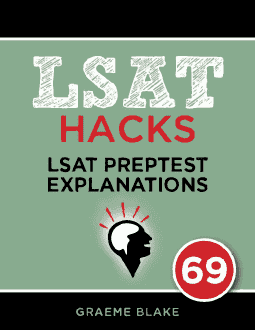QUESTION TEXT: Because no other theory has been able to predict it so…
QUESTION TYPE: Principle – Strengthen
CONCLUSION: Predicting the advance of the perihelion isn’t evidence for Einstein’s theory.
REASONING: The advance of the perihelion was well known. Einstein could have adjusted his theory to account for it.
ANALYSIS: This is reasonable. No scientist would publish a theory that made obviously wrong predictions. So it’s likely Einstein made sure his theory predicted things like the perihelion.
If the perihelion had been discovered after the theory was published, then that would provide better evidence that Einstein’s theory was correct. It’s impressive to correctly predict something unknown.
Many wrong answers assume that you were confused about the conclusion. The conclusion is: the advance of the perihelion should not be considered evidence that the theory is correct.
___________
- No one claimed the theory discovered the perihelion. The perihelion was well known before Einstein made his theory.
- This is a good answer until the end. It says “unless the theory was developed with that phenomenon in mind.”It should be “unless the theory was developed without the phenomenon in mind”. Predicting something is not impressive if you know about it.
- We’re not arguing about whether Einstein’s theory is well supported. We’re arguing about whether the fact that Einstein accounted for the perihelion should be evidence for his theory.
- CORRECT. Einstein probably did adjust his theory to account for the perihelion. So this shows that we shouldn’t count the perihelion as evidence for his theory.
- The first part of this is right. The second part isn’t. We’re not arguing whether or not the theory predicted the perihelion. We want to know if accounting for the perihelion should be evidence for the theory.


Leave a Reply